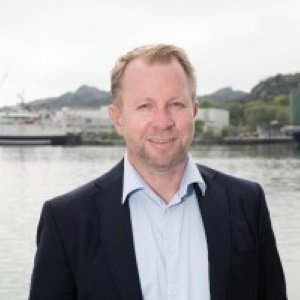Yara Clean Ammonia - Experts & Thought Leaders
Latest Yara Clean Ammonia news & announcements
DNV has released a competence standard (ST) for methanol and a recommended practice (RP) for ammonia, to enable crew and shipowners to tackle the safety risks and challenges posed by the introduction of new alternative fuels and technologies through shipping’s decarbonisation. While new fuels and technologies are key to achieving maritime decarbonisation, their adoption necessitates robust safety and competence frameworks. DNV’s Insights platform The number of vessels typed with alternative-fuelled power is growing, with 27 ammonia vessels According to DNV’s Alternative Fuels Insights platform, the number of vessels ordered with alternative-fuelled capability is growing, with 27 ammonia and 322 methanol-fuelled vessels currently on the orderbooks. To ensure safe operations as these vessels enter service, it is essential that the shipboard crew has the right knowledge and skills and adhere to updated processes and procedures. New fuels and technologies Knut Ørbeck-Nilssen, CEO DNV Maritime said: “Embracing new fuels and technologies is essential to achieving our decarbonisation goals, but these advancements introduce new risks, adding complexity to an already challenging operating environment." "To obtain a safe, timely, and impactful maritime transformation, we need to ensure safe operations by supporting both our seafarers and onshore personnel. Competence development is crucial for managing the transition safely and avoiding a safety gap that could put crew, assets, the environment, and our decarbonisation efforts at risk.” Shipboard crew on vessels The DNV-ST-0687 “Competence related to the use of methanol as fuel” published in October The DNV-ST-0687 “Competence related to the use of methanol as fuel” published in October, and the DNV-RP-0699 “Competence related to the use of ammonia as fuel,” published in December, apply to shipboard crew on vessels using methanol or ammonia as fuel. They clearly outline the expected competencies for using these fuels onboard, enabling the assessment and verification of an individual's knowledge and skills to ensure they can operate and maintain systems and equipment safely. Needs for the shipboard crew Kirsten Birgitte Strømsnes, Business Development Pioneer in DNV Maritime Advisory said: “Introducing methanol or ammonia as fuel onboard vessels will impact personnel ashore, the shipboard crew and the shipowner’s organisation. It is critical that the crew can recognise risks and operate systems safely and the organisation needs to accommodate for this through, i.e., safety management system and other organisational means." “DNV’s Methanol ST and Ammonia RP can provide the shipowner with an overview of competence needs for the shipboard crew, and assist in defining training needs, crew planning and input to manuals." Verification of learning programs Strømsnes added: "The purpose of these documents is to be used by shipowners for onboard familiarisation and competence management, by maritime academies and training institutions to develop curricula and courses and by third parties, as a reference document, for certification or verification of learning programs and competence assessments in examinations.” DNV collaborated with OSM Thome and Northern Marine when developing the ST and Amon Maritime, Azane Fuel solutions, Yara Clean Ammonia, Wärtsilä, Kongsberg Maritime and Bernhard Schulte Shipmanagement/Ula Ship Management when developing the ammonia RP.
The Maritime and Port Authority of Singapore (MPA), the Port of Rotterdam Authority (PoR) and 20 partners in the Green & Digital Shipping Corridor are working to reduce 20% to 30% of emissions from international shipping by 2030. This was agreed at the third Green Corridor workshop, held this week in Rotterdam. Green & Digital Shipping Corridor The Green & Digital Shipping Corridor was established in August 2022 to bring together partners across the supply chain to realise zero and near-zero emissions shipping on the Rotterdam-Singapore route, with the ultimate aim to reach net-zero emissions in 2050. Over the past year, the corridor attracted strong support from global value-chain partners Over the past year, the corridor attracted strong support from global value-chain partners, including shipping lines, port authorities and operators, fuel suppliers, fuel coalitions and associations, banks, leading institutes of higher learning and knowledge partners. Reducing greenhouse gas emissions The project partners are working towards reducing greenhouse gas emissions from this international shipping corridor by 20%, striving for 30%, by 2030, compared to 2022. The corridor will continue to deepen efforts towards achieving the strengthened ambition of the International Maritime Organization (IMO) under the 2023 IMO Strategy on Reduction of GHG Emissions from Ships. This is to be achieved through the development and uptake of zero and near-zero emission fuels in large containers vessels (of at least 8,000 TEU) deployed on the 15,000 km route, supported by a combination of operational and digital efficiencies. Multiple alternative fuels explored A modelling study led by the Mærsk Mc-Kinney Møller Center for Zero-Carbon Shipping, one of the corridor partners for the project, and supported by the ports, explored multiple alternative fuels across a variety of zero and near-zero emission pathways, including synthetic and bio-variants of methanol, ammonia and LNG. Beyond the study, hydrogen is one other alternative fuel pathway to be looked at. Efforts are underway to aggregate demand and supply to reduce cost gap towards adoption of sustainable fuels. Identify action steps for the various fuel pathways Working groups have been established to look into the deployment of all of these fuels on the trade lane Working groups have been established to look into the deployment of all of these fuels on the trade lane, spanning across demand and supply of fuel, standards, safety procedures, financing and regulations. The corridor partners gathered in Rotterdam, Netherlands this week, in order to identify action steps for the various fuel pathways. Enabling the use of new fuels Low carbon fuels will likely be more expensive than existing fuels. Therefore, a separate working group has been formed with the support of the Global Maritime Forum, the Centre for Maritime Studies of the National University of Singapore, University of Oxford, and Citi, to address gaps in regulation and financing. The study includes modelling price-gap differences to incentivise the uptake of alternative fuels. In addition, Singapore and Rotterdam have jointly assessed the readiness of both ports and steps ahead, such as adopting similar bunkering standards and safety frameworks to accelerate the adoption of zero and near-zero emission fuels on this major trade route. This was put into action in Q3 2023 with the conduct of ship-to-ship green methanol bunkering on the world’s first methanol-fuelled container ship at both - the Port of Singapore and Rotterdam. The partners believe that the corridor’s approach, supported by the strong industry coalition will provide greater certainty in demand and help scale-up production of zero and near-zero emission fuels. This will help to close the cost gap and encourage even wider adoption of such fuels. Digital trade lanes Rotterdam and Singapore are the first ports adopting and sharing port and vessel information Rotterdam and Singapore are the first ports adopting and sharing port and vessel information, such as arrival and departure timings in accordance with global standards, namely the IMO & International Hydrographic Organization (IHO) standards to enable systems interoperability. Both ports are also promoting the use of electronic bills of lading and digital solutions such as just-in-time planning and coordination to enhance efficiencies and reduce GHG emissions. Partners in the Green & Digital Shipping Corridor The Maritime and Port Authority of Singapore, the Port of Rotterdam, A.P. Moller Maersk A/S, bp, the Centre for Maritime Studies of the National University of Singapore, Citi, Clifford Capital, CMA CGM, Digital Container Shipping Association, the Global Centre for Maritime Decarbonisation, the Global Maritime Forum, the Mærsk Mc-Kinney Møller Center for Zero-Carbon Shipping, Methanol Institute, MSC, Nanyang Technological University Maritime Energy and Sustainable Development Centre of Excellence, Ocean Network Express, PSA International, RMI, SEA-LNG, Shell, University of Oxford, Yara Clean Ammonia.
ABS hosted a containership summit in Germany to provide a holistic overview of the container shipping landscape, the current and developing regulatory framework, as well as strategic decisions in terms of emerging technologies and alternative fuels options that will shape the low-carbon future of container shipping and drive market growth. More ambitious regulations “We expect the IMO to release more ambitious regulations this year to move the industry forward with decarbonisation goals. This event put an important spotlight on the container sector, a part of the industry that has seen steep falls in freight rates, which rose during the pandemic to record levels.” We are exploring solutions to support owners and operators today to address alternative fuels" “By hosting events such as these with influential voices, we are exploring solutions to support owners and operators today to address alternative fuels and their supply chains, acknowledge older vessels and their compliance risks as well as discuss existing technologies that can support operations strategies right now,” said Vassilios Kroustallis, ABS Senior Vice President, Global Business Development. Regulatory and sustainability trends The event began with an overview of the market from Jan Tiedemann, Vice President of Liner Strategy at Alphaliner, followed by updates from Christopher Perrocco and Rene Laursen from ABS, who provided insights into regulatory and sustainability trends. “Methanol, LNG, and ammonia are not competing fuels but complementary fuels. All of them are needed to downsize container shipping’s carbon footprint,” said Tiedemann. Next, the agenda featured landmark perspectives on decarbonisation from MAN Energy Solutions, Thome Group and ABS with Alexander Feindt, Global Business Development Manager at MAN Energy Solutions, presenting ‘Technology as an Enabler for Decarbonisation of Shipping,’ Torbjorn Lie, Business Development Manager at Thome Group, presenting ‘A Greener Workhorse – Feasibility Study of a Methanol Conversion for a 2,500 TEU Vessel,’ and. Christoph Rasewsky, ABS Global Container Sector Lead, sharing cutting-edge research on how to eliminate 97 percent of emissions at present-day slot costs. Carbon neutral transportation ABS has been at the forefront of providing classification and technical services for containerships “Carbon neutral transportation can be achieved at current slot costs, but clean fuel supply is the biggest constraint. Our analysis shows that by combining operational efficiencies with energy-saving devices such as air lubrication and design improvements in new builds, the container sector could still operate within the range of slot costs recorded today using conventional fuel,” said Rasewsky. The final portion of the event featured a panel discussion titled ‘From a Monoculture to a Mixed Culture – The Take-off of the Alternative Fuels Landscape.’ Moderated by Namrata Nadkarni of Intent Communications, the panel included Johannes Schuermann, Sales Director from Good Fuels; Lars Justus Ravens, CEO of eCap Marine; Tessa Major, Vice President of Bunkering at Yara Clean Ammonia and Torben Nørgaard CTO of Mærsk Mc-Kinney Møller Center for Zero Carbon Shipping. From the voyage of the first containership, Ideal X, in 1956, ABS has been at the forefront of providing classification and technical services for containerships operating around the world.






